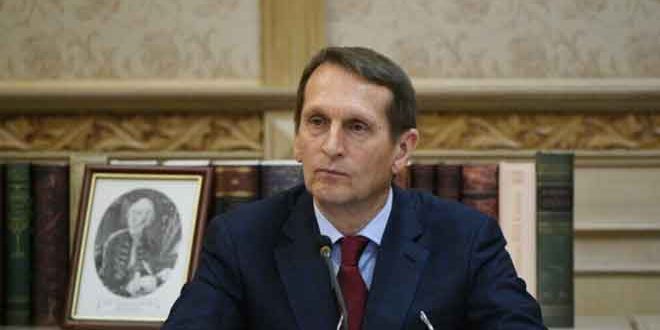MOSCOW – Russia’s fate and place in the world are being decided at the moment and the chief factor for the country’s development is sovereignty, which Russia will never agree to abandon, the chairman of the Russian Historical Society, foreign intelligence service SVR director Sergey Naryshkin, said at the first meeting of the expert council on the development of historical education under the Education and Science Ministry.
“Our country is living through a truly historical moment. Russia’s future and its future place in the world are at stake,” he said. “It should be remembered that sovereignty has always been the chief factor for Russia’s development and the backbone of its thousand-year-long history. Just as the right to decide its destiny on its own, freely and consciously. Sovereignty is a safeguard of the well-being and dignity of our citizens. It is the future of our children. Russia has never backtracked on such issues and it will never do so, because otherwise it will stop being Russia.”
Naryshkin stressed that Russian President Vladimir Putin’s decision to conduct a special military operation in Ukraine was based on the extremely precise and realistic vision of the world situation. The slightest delay in taking action against the outspokenly Russophobic regime in Kiev would have brought about a far worse tragedy.
“The Russian president’s decision to conduct a special military operation with the aim of protecting the population of Donbass and protecting the security of our country relied on the profound analysis of laws of history and an extremely precise and realistic vision of the world situation,” he said.
“Russia was left with no other choice,” Naryshkin said. “The slightest delay in taking action towards the outspokenly Russophobic, corrupt and oligarchic regime in Kiev would have brought about a great tragedy in the near future.”
Russian President Vladimir Putin on February 24 launched a special military operation in Ukraine in response to the Donbass republics’ leaders’ plea for help. Russia demands Ukraine’s demilitarization and denazification, its neutral and non-nuclear status, recognition of Russia’s sovereignty over Crimea and the recognition of the Donetsk and Lugansk republics’ sovereignty.
Sources: TASS
Raghda Sawas

